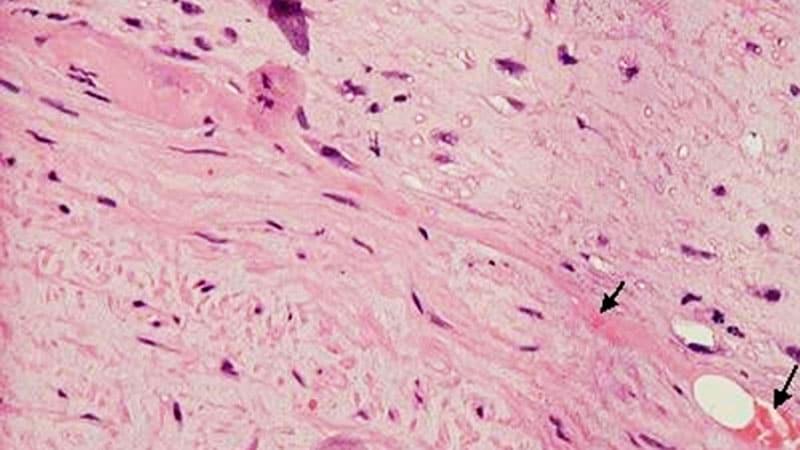Mayo Clinic Pioneers 'Virtual Clinical Trials' to Accelerate Heart Failure Drug Development
2 Sources
2 Sources
[1]
'Virtual clinical trials' may predict success of heart failure drugs
Mayo Clinic researchers have developed a new way to predict whether existing drugs could be repurposed to treat heart failure, one of the world's most pressing health challenges. By combining advanced computer modeling with real-world patient data, the team has created "virtual clinical trials" that may facilitate the discovery of effective therapies while reducing the time, cost, and risk of failed studies. "We've shown that with our framework, we can predict the clinical effect of a drug without a randomized controlled trial. We can say with high confidence if a drug is likely to succeed or not," says Nansu Zong, Ph.D., a biomedical informatician at Mayo Clinic and lead author of the study, which was published in npj Digital Medicine. An urgent need Heart failure affects more than 6 million Americans and is a leading cause of hospitalization and death. Despite decades of research, treatment options remain limited and many clinical trials fail. Traditional drug development is costly and slow, often taking more than a decade and $1 billion to bring a single therapy to market. Drug repurposing -- finding new uses for medicines already approved for other conditions -- could offer a faster, less costly pathway. Because the safety of these drugs is already established, researchers can move directly to studying their potential benefits for new diseases. Yet determining which drugs are worth pursuing remains a major challenge. Dr. Zong led efforts with a multidisciplinary team of experts in biochemistry, molecular pharmacology, cardiovascular medicine and quantitative health sciences to combine two powerful tools: computer models that predict how drugs interact with biological systems, and electronic health records (EHRs) from nearly 60,000 patients with heart failure. Using these tools, the researchers designed virtual clinical trials -- also called trial emulations -- that mimic the structure of a randomized clinical trial. Instead of recruiting participants, they used existing patient data to create comparison groups and measure outcomes such as changes in biomarkers that track heart failure progression. To strengthen the accuracy of these predictions, the team added drug-target modeling, a method that uses AI to analyze chemical structures alongside biological data, such as protein sequences or genes. This addition helped bridge the gap between real-world patient data and traditional randomized trials. The team tested this approach with 17 drugs that had already been studied in 226 Phase 3 heart failure clinical trials. Seven had shown benefit, while 10 had not. The virtual clinical trials accurately predicted the "direction" of those real-world results. "This model has the potential to guide drug development pipelines at scale," says Dr. Zong. "Right now, it can tell us the direction of efficacy -- whether a drug will be beneficial -- but not yet the level of that effect. That's our next step." Faster, smarter clinical research By identifying which repurposed drugs are most promising, researchers can prioritize them for further clinical testing and focus resources where success is most likely. That could mean faster access to therapies for patients and lower costs for health care systems. Originally developed as an AI-enabled framework for virtual clinical trials, this technology has now led to a broader initiative within Mayo Clinic under the guidance of Cui Tao, Ph.D., the Nancy Peretsman and Robert Scully Chair of Department of Artificial Intelligence and Informatics and vice president of Mayo Clinic Platform Informatics. The new effort is exploring three complementary approaches: * Trial emulation -- replicating the design and analysis of a completed or hypothetical trial using real-world data to validate findings or generate evidence * Trial simulation -- creating a mock trial with real-world data to estimate how an existing treatment would perform in a different population or for a new indication * Synthetic trials -- constructing a trial that replaces or augments one or more arms with real-world or modeled patient data "Clinical trials will always remain essential," says Dr. Tao. "But this innovation demonstrates how AI can make research more efficient, affordable and broadly accessible. Integrating trial emulation, simulation, synthetic trials and biomedical knowledge modeling opens the door to a new paradigm in translational science."
[2]
'Virtual Clinical Trials' May Predict Success of Heart Failure Drugs | Newswise
Newswise -- ROCHESTER, Minn. -- Mayo Clinic researchers have developed a new way to predict whether existing drugs could be repurposed to treat heart failure, one of the world's most pressing health challenges. By combining advanced computer modeling with real-world patient data, the team has created "virtual clinical trials" that may facilitate the discovery of effective therapies while reducing the time, cost, and risk of failed studies. "We've shown that with our framework, we can predict the clinical effect of a drug without a randomized controlled trial. We can say with high confidence if a drug is likely to succeed or not," says Nansu Zong, Ph.D., a biomedical informatician at Mayo Clinic and lead author of the study, which was published in npj Digital Medicine. Heart failure affects more than 6 million Americans and is a leading cause of hospitalization and death. Despite decades of research, treatment options remain limited and many clinical trials fail. Traditional drug development is costly and slow, often taking more than a decade and $1 billion to bring a single therapy to market. Drug repurposing -- finding new uses for medicines already approved for other conditions -- could offer a faster, less costly pathway. Because the safety of these drugs is already established, researchers can move directly to studying their potential benefits for new diseases. Yet determining which drugs are worth pursuing remains a major challenge. Dr. Zong led efforts with a multidisciplinary team of experts in biochemistry, molecular pharmacology, cardiovascular medicine and quantitative health sciences to combine two powerful tools: computer models that predict how drugs interact with biological systems, and electronic health records (EHRs) from nearly 60,000 patients with heart failure. Using these tools, the researchers designed virtual clinical trials -- also called trial emulations -- that mimic the structure of a randomized clinical trial. Instead of recruiting participants, they used existing patient data to create comparison groups and measure outcomes such as changes in biomarkers that track heart failure progression. To strengthen the accuracy of these predictions, the team added drug-target modeling, a method that uses AI to analyze chemical structures alongside biological data, such as protein sequences or genes. This addition helped bridge the gap between real-world patient data and traditional randomized trials. The team tested this approach with 17 drugs that had already been studied in 226 Phase 3 heart failure clinical trials. Seven had shown benefit, while 10 had not. The virtual clinical trials accurately predicted the "direction" of those real-world results. "This model has the potential to guide drug development pipelines at scale," says Dr. Zong. "Right now, it can tell us the direction of efficacy -- whether a drug will be beneficial -- but not yet the level of that effect. That's our next step." By identifying which repurposed drugs are most promising, researchers can prioritize them for further clinical testing and focus resources where success is most likely. That could mean faster access to therapies for patients and lower costs for healthcare systems. Originally developed as an AI-enabled framework for virtual clinical trials, this technology has now led to a broader initiative within Mayo Clinic under the guidance of Cui Tao, Ph.D., the Nancy Peretsman and Robert Scully Chair of Department of Artificial Intelligence and Informatics and vice president of Mayo Clinic Platform Informatics. The new effort is exploring three complementary approaches: "Clinical trials will always remain essential," says Dr. Tao. "But this innovation demonstrates how AI can make research more efficient, affordable and broadly accessible. Integrating trial emulation, simulation, synthetic trials and biomedical knowledge modeling opens the door to a new paradigm in translational science." Looking ahead, these innovations could become an integral part of Mayo Clinic's enterprise strategy. They could support Mayo's strategic efforts such as Precure by advancing proactive risk prediction and prevention and Genesis by informing intelligent transplant care delivery and personalized interventions. ### About Mayo Clinic Mayo Clinic is a nonprofit organization committed to innovation in clinical practice, education and research, and providing compassion, expertise and answers to everyone who needs healing. Visit the Mayo Clinic News Network for additional Mayo Clinic news.
Share
Share
Copy Link
Mayo Clinic researchers have developed a groundbreaking AI-powered framework for conducting 'virtual clinical trials' to predict the efficacy of repurposed drugs in treating heart failure, potentially revolutionizing the drug development process.
Mayo Clinic's Innovative Approach to Drug Development
Mayo Clinic researchers have made a significant breakthrough in the field of drug development, particularly for heart failure treatments. Led by Dr. Nansu Zong, a team of experts has created a novel framework for conducting 'virtual clinical trials' that can predict the efficacy of repurposed drugs in treating heart failure without the need for traditional randomized controlled trials
1
2
.The Urgent Need for Heart Failure Treatments
Heart failure is a critical health challenge affecting over 6 million Americans and is a leading cause of hospitalization and death. Despite extensive research, treatment options remain limited, and many clinical trials fail. Traditional drug development is a costly and time-consuming process, often requiring more than a decade and $1 billion to bring a single therapy to market
1
.Virtual Clinical Trials: A Game-Changing Approach
The Mayo Clinic team's innovative approach combines two powerful tools:
- Advanced computer models predicting drug-biological system interactions
- Electronic health records (EHRs) from nearly 60,000 heart failure patients
This combination allows researchers to design virtual clinical trials, also known as trial emulations, that mimic the structure of randomized clinical trials. Instead of recruiting participants, the team uses existing patient data to create comparison groups and measure outcomes, such as changes in biomarkers that track heart failure progression
2
.
Source: Medical Xpress
Enhancing Prediction Accuracy with AI
To improve the accuracy of their predictions, the researchers incorporated drug-target modeling, an AI-powered method that analyzes chemical structures alongside biological data, such as protein sequences or genes. This addition helps bridge the gap between real-world patient data and traditional randomized trials
1
.Promising Results and Future Potential
The team tested their approach with 17 drugs previously studied in 226 Phase 3 heart failure clinical trials. The virtual clinical trials accurately predicted the 'direction' of efficacy for these drugs, successfully identifying which ones showed benefit and which did not
2
.Dr. Zong emphasized the potential of this model to guide drug development pipelines at scale. While the current framework can predict whether a drug will be beneficial, future developments aim to determine the level of that effect
1
.Related Stories
Broader Implications for Medical Research
Under the guidance of Dr. Cui Tao, Mayo Clinic is expanding this technology into a broader initiative exploring three complementary approaches:
- Trial emulation
- Trial simulation
- Synthetic trials
These innovations could become an integral part of Mayo Clinic's enterprise strategy, supporting strategic efforts such as Precure for proactive risk prediction and prevention, and Genesis for intelligent transplant care delivery and personalized interventions
2
.The Future of Clinical Research
While traditional clinical trials will remain essential, this AI-powered innovation demonstrates the potential to make research more efficient, affordable, and broadly accessible. By integrating various trial approaches with biomedical knowledge modeling, Mayo Clinic is paving the way for a new paradigm in translational science that could revolutionize drug development and improve patient outcomes
1
2
.References
Summarized by
Navi
[1]
Related Stories
Recent Highlights
1
ByteDance's Seedance 2.0 AI video generator triggers copyright infringement battle with Hollywood
Policy and Regulation

2
Demis Hassabis predicts AGI in 5-8 years, sees new golden era transforming medicine and science
Technology

3
Nvidia and Meta forge massive chip deal as computing power demands reshape AI infrastructure
Technology








